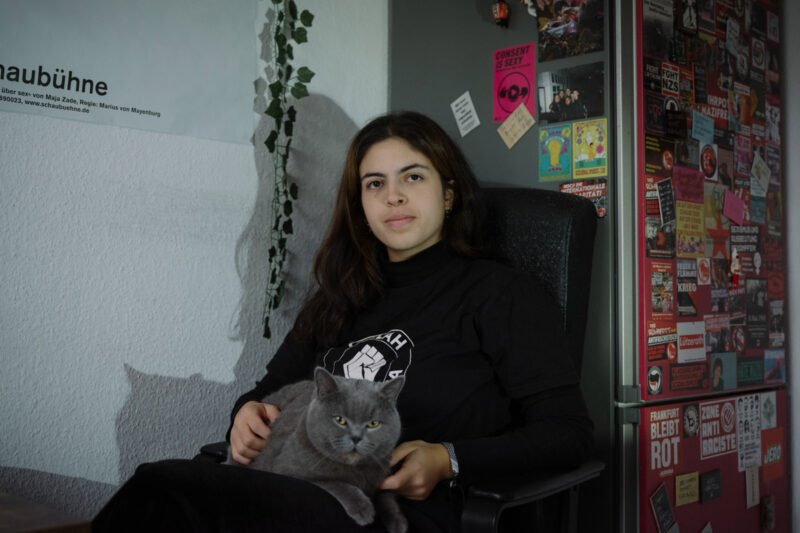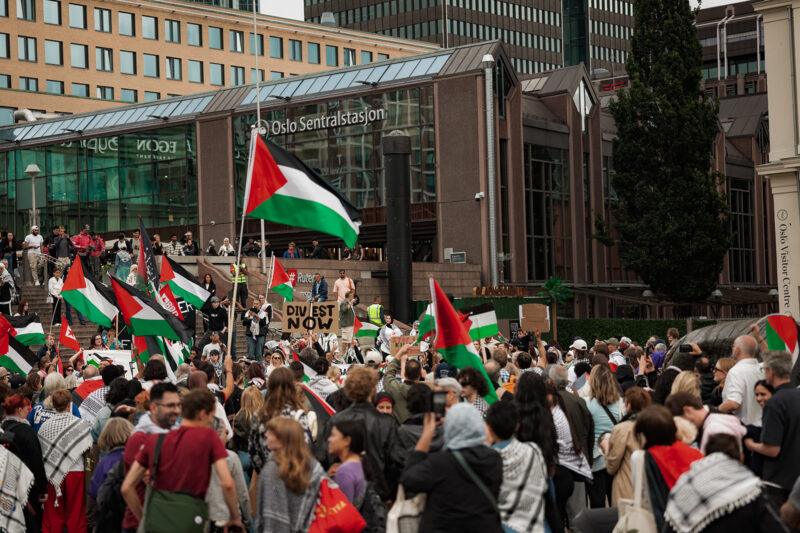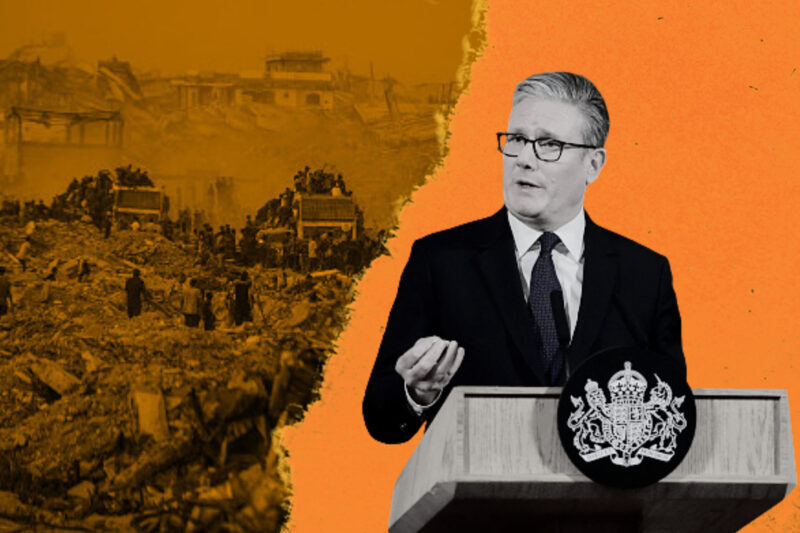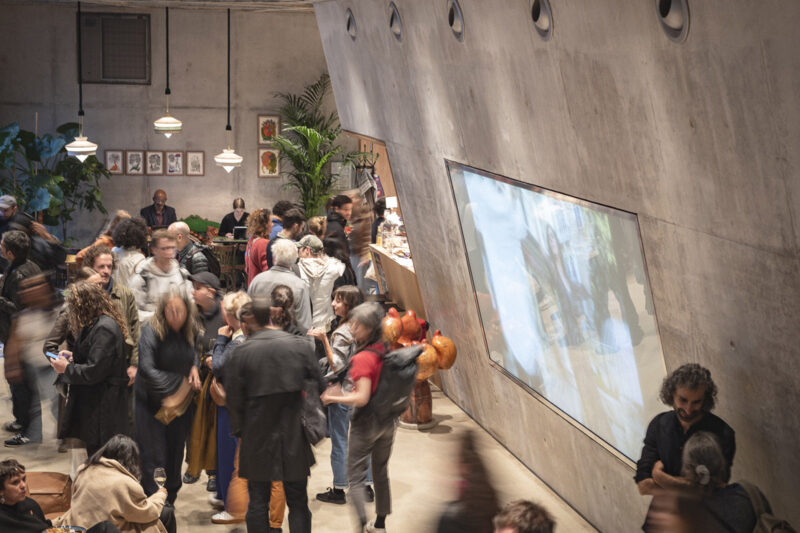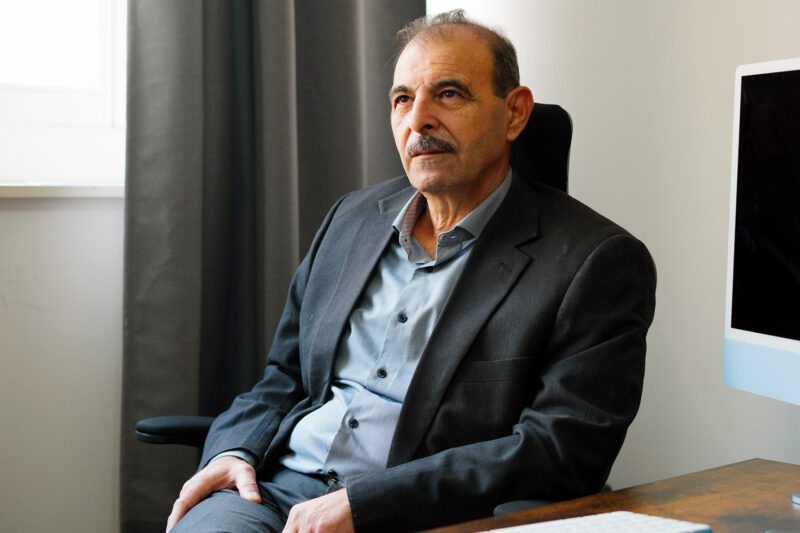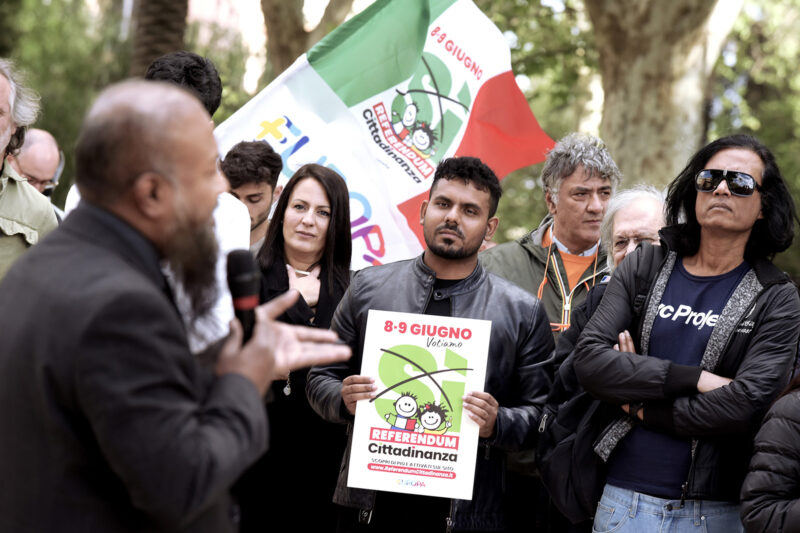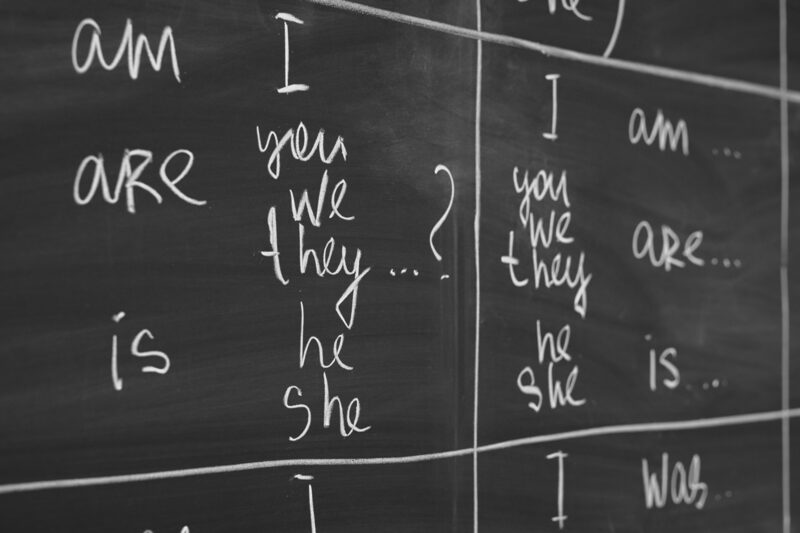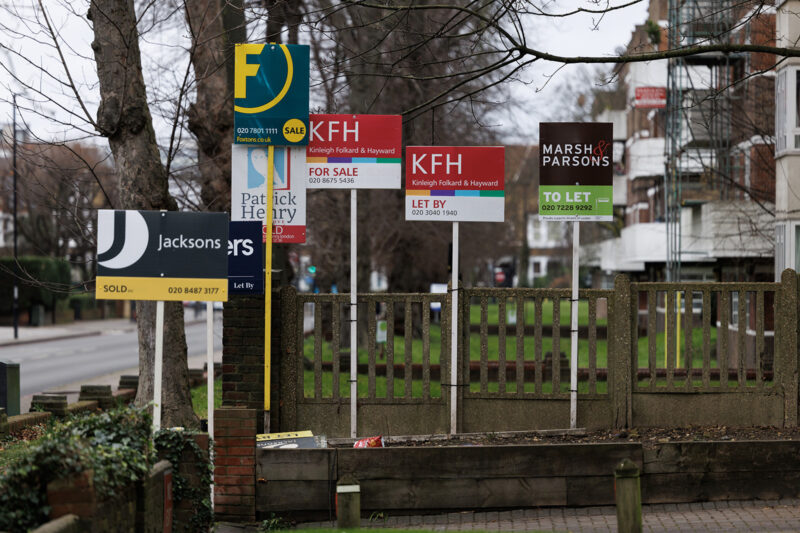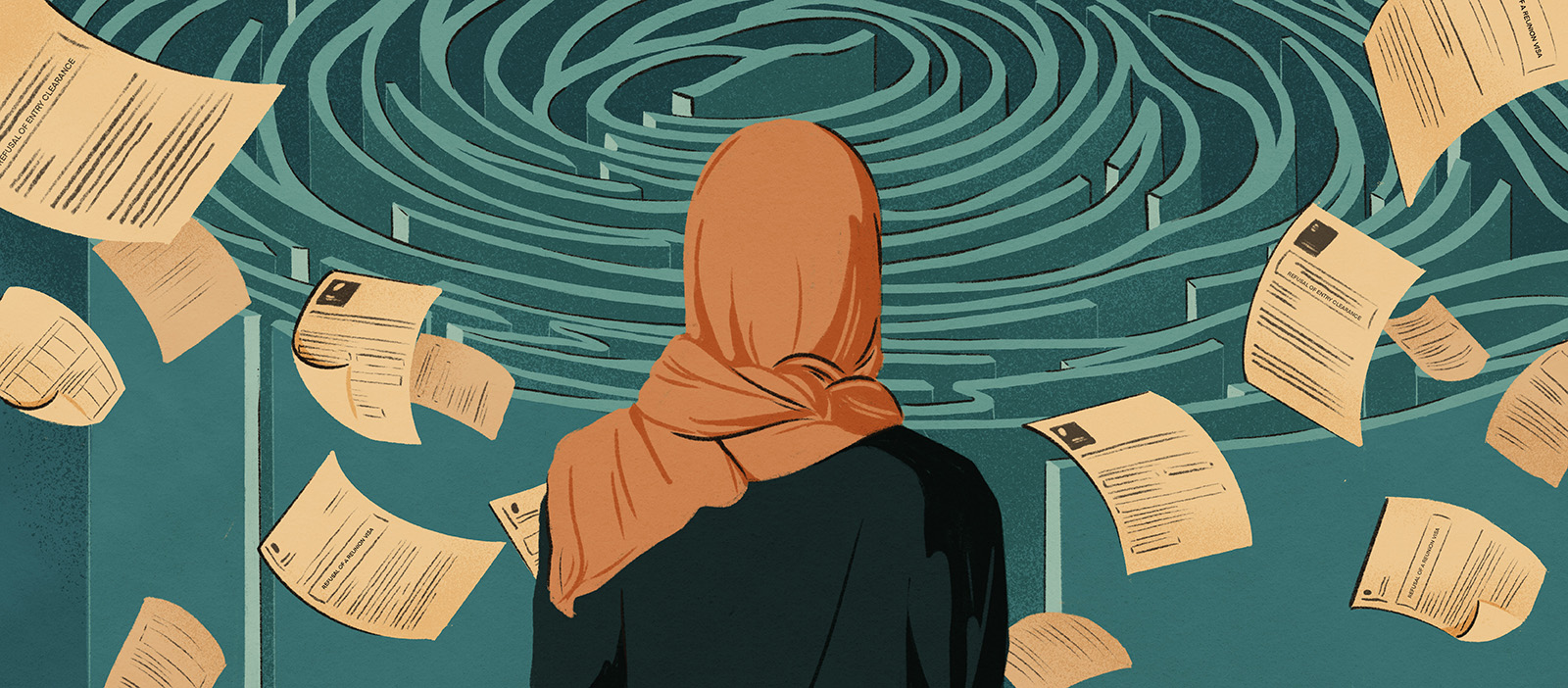
‘Will my family still be alive when I wake up?’
Palestinians in the UK are calling for a way for loved ones in Gaza to join them here, as Afghans and Ukrainians have done
Doaa has not heard from her family in 10 days. The last time they were in contact — a short message to say that they were alive and had some food — they had left Rafah in southern Gaza after being told by Israeli forces to evacuate the city.
Doaa’s mother and sisters, originally from northern Gaza, have fled south over the past seven months as Israel’s assault has intensified and the humanitarian situation has worsened.
“They’re fleeing to areas where there is nothing, where the infrastructure is already destroyed,” she said from her home in Scotland. This concern hangs heavy over Doaa and the many Palestinian families around the world whose loved ones are unable to escape the war that has killed more than 35,000 Palestinians.
“I feel like there are no options,” said Doaa. “You go to bed not knowing if your family will make it another night. But I have to take it day by day, so I can at least continue to amplify the voices of my family and other Palestinians. Otherwise, I would be completely devastated.”
Doaa has worked in non-profits in Scotland since moving to the UK to complete a master’s degree at the University of Leeds in 2018. She belongs to Gaza Families Reunited, a group of some 350 Palestinians in the UK who are calling for a family resettlement visa scheme, much like past reunification schemes for Ukranians, Afghans and Hong Kong British nationals. In recent months the only route out of the devastated land has been through the Rafah crossing using an Egyptian travel company, Hala, which raised its prices to £3,960 per adult, a 14-fold increase since the war began. The Rafah crossing has, however, now closed.
“The family scheme is so important because we’re talking about 350 families in the UK who are seeing their loved ones suffer unimaginable losses,” said Andy Sirel, legal director and partner at JustRight Scotland, a charity formed by human rights lawyers. “But we know that it doesn’t need to be this way, because when Russia invaded Ukraine in 2022, European countries and the UK very quickly put in place ways for those people to access safety.”
It is almost impossible for Palestinians to seek asylum or be reunited with their relatives here. There is no legal way to enter the country to claim asylum, yet that claim can only be made while physically on UK soil.
Relatives of foreign nationals settled in the UK or with British citizenship can apply for a family reunion visa, but this visa has debilitatingly strict requirements. For Palestinians, the need to provide evidence of identity, such as a passport or medical document, is an additional barrier. “Given the carnage and chaos, for folks in Gaza this is almost impossible,” said Sirel. “Most of the infrastructure to get that information is destroyed. And where we don’t have documents, we would need to prove the relationship, which we would commonly do with DNA testing. But, of course, that’s not possible either.”
The Home Office also requires that people register their biometric information before their case is considered — a hurdle that was lifted temporarily for Ukranians and Afghans. “This is where we get into the catch-22 for families in Gaza, as there is no functioning visa application centre,” Sirel said.
In early March, the upper tribunal found it was unlawful that the home secretary refused to decide on the reunion applications of three families trapped in Gaza because they couldn’t provide fingerprints. Later that month, it was reported that two Palestinians whose visa applications had been refused because they couldn’t provide biometric data had died in Gaza.
“We believe that the barriers in place in the existing family reunion rules are unreasonable and more often than not unlawful, and that applies beyond Gaza as well,” said Sirel. “The Home Office and UK government have the power to help, but they’re not and it’s extremely disappointing.”
For months now, Gaza Families Reunited has been calling for a resettlement scheme that would lift those barriers. On 13 May, after a petition obtained more than 100,000 signatures, the visa scheme was debated in parliament.
“Current visa rules are so restrictive that most people’s loved ones in Gaza will not be eligible. As a result, people with families in the UK — perhaps their only surviving relatives — might be stuck in Gaza with no way of joining them,” said Nadia Whittome, Labour MP for Nottingham East, who joined the Westminster Hall debate.
“I have seen the joy and relief brought to so many people through the Ukraine Family Scheme. It’s only right that people whose loved ones are at risk in other war zones, like Gaza, should be able to experience the same through similar schemes.”
While campaigners acknowledged the cross-party support for the scheme, they were again left disappointed by the government’s inaction.
“The lack of response to the specific barriers to family reunification that Palestinian families face amid ongoing Israeli bombardment and starvation is abhorrent, to say the least,” a spokesperson for Gaza Families Reunited said in a statement.
A government spokesperson told Hyphen: “We are working around the clock to get British nationals who want to leave out of Gaza. We have a team on the ground in Cairo and at the Rafah crossing providing consular assistance.
“We currently have no plans to establish a separate route for Palestinians to come to the UK. However, any dependents of British citizens who need a visa can apply for one.”
Such responses have left many Palestinians feeling helpless. “It’s really heartbreaking to see what our families are going through every day for the last seven months, and without getting any support from the UK government,” said Ghassan Ghaben, a member of Gaza Families Reunited.
Ghaben fundraised £28,000 to pay for his parents and three siblings to evacuate to Egypt. Although it is a huge relief that his family is out of Gaza, he said: “I can’t ignore the fact that my family is stuck in limbo right now because they have no status whatsoever in Egypt. They can’t open a bank account. They can’t do anything. They can’t access healthcare.
“They’ve witnessed the most horrific scenes, they’ve seen lots of people killed and they were running for their lives, literally. And during these months we’ve been calling for a family visa scheme, we’ve been trying to contact the Home Office and have received no help at all,” he added.
Ghaben recently managed to speak to his aunt, who was forced to evacuate Rafah into the desert, but she told him she doesn’t even have a tent to sleep under.
Gaza Families Reunited will keep calling on the government to step up, not only to create a safe route to the UK, but for an immediate ceasefire and to cut ties with Israel. Campaigners know they’re backed by much of the British public — a recent survey found that 73% support an immediate ceasefire, while hundreds of thousands continue to protest across the country. “This government doesn’t represent the British people and we feel really frustrated,” Ghaben says.
As each day of inaction passes, Doaa, Ghaben and hundreds more Palestinians in Britain go to sleep with one thought: will my family still be alive when I wake up?
“I’ve lost at least 20 members of my family and many friends, and all of them were killed in the most horrific ways. Two of my cousins were taking shelter in a UN office that was hit by a missile,” Ghaban said.
“It’s a constant feeling of sadness, fear and frustration. We just hope that the situation gets better but, honestly, what we see right now is just getting worse and worse.”
 Newsletter
Newsletter


